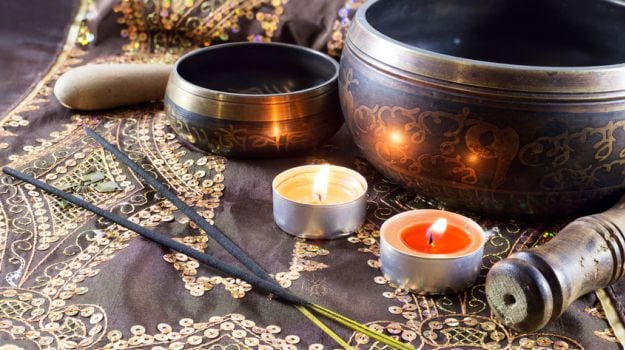 There are many moments – the loss of a job, finding out you have cancer, a child’s walk home from school in a dangerous neighborhood – when faith in a loving God watching over you can provide comfort and hope, several studies have found.
There are many moments – the loss of a job, finding out you have cancer, a child’s walk home from school in a dangerous neighborhood – when faith in a loving God watching over you can provide comfort and hope, several studies have found.
But are there times when too much control can be ceded to God?
When it comes to health, the answer in many cases may be yes.
Placing too much control in divine hands may lessen efforts to seek treatment or take preventive measures such as quitting smoking or following a healthy diet, according to a new study.
Men and women who said they believed in divine healing were more likely to let God decide how to solve their health problems, a study led by University of Michigan researcher R. David Hayward found.
And people who were more likely to place responsibility for their health care in divine hands reported worse health outcomes.
Divine deferral still can be a beneficial approach in the cases of dying individuals when medical intervention can no longer help, researchers noted. Placing faith in a benevolent God to be at their side in their last days can help ease their anxiety and suffering.
Until they reach that stage, however, the study suggests that religious people may find it more beneficial to work together with God by doing their best to find the correct treatment for illnesses and living a healthy life.
It is finding the right balance between divine control and personal control that can be the tricky part.
More than 4 in 5 Americans say God often performs miracles. Nearly half of Americans say they have experienced a supernatural miracle.
And for many religious people, particularly blacks and evangelicals, there is a greater likelihood of ceding personal control of health issues to God.
In a University of Chicago study of urban cancer patients, 61 percent of black participants said God was in control of their cancer; just 29 percent of whites agreed with the statement.
“Based on our findings, we believe this may be an important component in the health care decision-making of African-American patients. . . . For example, if they solely turn to prayer while delaying seeking medical attention,” researchers said in the Journal of Racial and Ethnic Health Disparities.
The University of Michigan Study found that religious activities such as prayer, Bible reading and worship attendance were associated with greater life satisfaction.
But a more active religious life also was linked to greater belief in healing miracles, which in turn was related to deferring to God how to handle health problems.
And that was associated with worse symptoms of physical health.
The study published in the October issue of the Journal of Behavioral Medicine analyzed data from 2,948 participants in the national 2014 Landmark Spirituality and Health Survey.
– – –
There are no simple answers to finding an ideal balance of divine vs. personal control. Having a sense that a caring God is looking out for individuals can produce a lot of positive health outcomes.
In the case of health, believing God provides solutions to medical needs can help by “reducing the stress associated with chronic health problems and providing a sense of hope and optimism for the future,” researchers in the Michigan study noted.
In the study, even those participants with high levels of divine deferral and worse health symptoms reported greater satisfaction with their lives the more they were religiously active.
Where concern arises is when too much control is ceded to God, potentially leading to a sense of fatalism about the efficacy of one’s own efforts.
What can be done?
Some potential courses of action raised by the Michigan study include:
– Stressing the importance of working in cooperation with God to assist the process of divine healing.
– Having religious leaders also note that God’s miraculous ability does not detract from the importance of engaging in positive health behaviors.
– Encouraging religious beliefs, such as seeing one’s body as a gift from God, that may motivate people “to be more active in maintaining their own health because it is seen as a sacred duty.”
But there is no one-size-fits-all solution.
There are times when the benefits of ceding control to God outweigh the potential harm.
In end-of-life cases, for example, religious individuals may benefit from counseling that allows them to die in peace and security “in a way that is consistent with their religious beliefs,” researchers said.
In the lifetime journey of faith, research suggests, there is a time to take charge of your health, and a time to let go.










